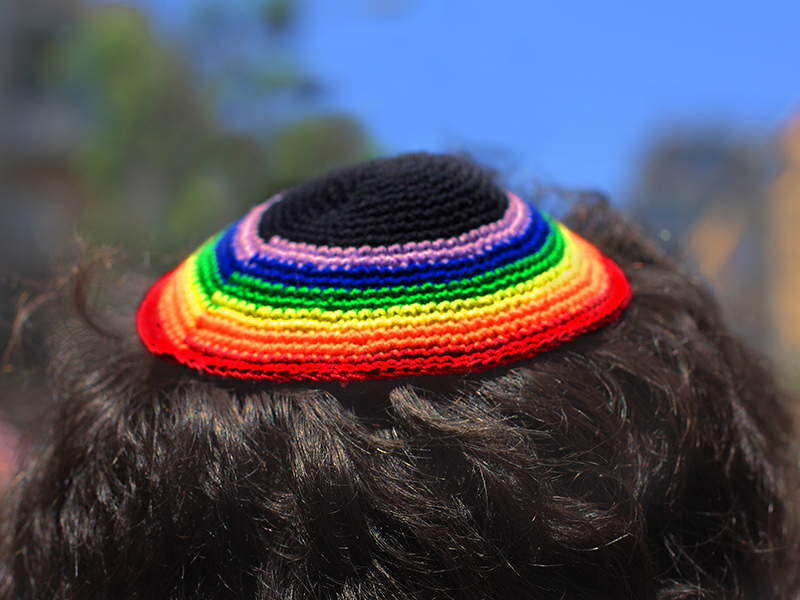The Forward recently published an article asking why the Canadian Reform movement appears to be so traditional compared to its American counterpart. The article is filled with inaccuracies and never really answers the question. We, the Reform Rabbis of Canada, the Canadian Council for Reform Judaism and the Reform Rabbis of Greater Toronto, would like to share our perspective.
Let us begin by clearly stating that Reform Judaism in Canada, its rabbis, cantors, lay leaders and congregations value inclusion, have a creative, entrepreneurial spirit, and are at the vanguard for issues of Social Justice. Our leadership during the height of the Syrian Refugee Crisis is just one example of how we live these values. The context in which these values play themselves out, however, is different here than it is in the United States. Central to that distinction is that we in Canada value communal standards over radical individual autonomy. Canadian Jewish culture, informed by the Talmudic admonishment, al tifrosh min hatzibur (do not separate yourself from the community) celebrates the collective.
Second, Jewish culture in Canada has been shaped by different forces: many Canadian congregations were built by a large number of Holocaust survivors, many who blessedly remain still in our midst and their traditionalism is felt. Their lived experience continues to inform our communal standards. In addition, in Canada a larger percentage of families choose Jewish day school over secular education. This leads to high levels of Jewish knowledge, comfort with Jewish ritual and a well-documented deep commitment of Canadian Jews to Israel.
Far from being ‘out of step’ with American Jewish values, the strength and depth of our strong communal bond is looked to across the Reform world as an example of inclusivity while honouring tradition. These two are not mutually exclusive.
Reform Judaism in Canada is the fastest growing denomination for a reason—because we do not abandon traditions which still make good sense, and because we thoughtfully study and understand any tradition before simply saying it is wrong.
The author makes particular note of the 1983 decision of the CCAR regarding patrilineal descent. It is inaccurate to suggest that acceptance of this standard is automatic or universal in our movement. The resolution has a long list of criteria a patrilineal Jew must fulfil— including “public and timely acts of Jewish identification”— and leaves it to that person’s Rabbi to ultimately decide their Jewishness. While some Canadian Reform Rabbis practice conversion of children whose Jewish parent is the father, all Canadian Reform congregations joyfully and fully welcome these individuals and families into the Reform and wider Jewish world.
The record needs to be corrected regarding same-sex marriage as well. The moment the Canadian government legalized same-sex marriage, Reform Rabbis began offering them. The first Jewish same-sex weddings were performed here a decade before the one the article mentions and before they were legal in the United States.
Unfortunately, the article characterizes Reform Rabbis as dismissive. We can assure readers that none of us ever give pat answers like “that’s the way it’s done here”, rather we engage in dialogue, discussion, and intellectual exploration with compassion and empathy.
READ: MARMUR: REFORM AND CONSERVATIVE JUDAISM UNDER ATTACK
The article also misrepresents some of our synagogue policies of reserving specific mitzvah honours for Jews, implying that we do not allow non-Jews on the bima ever, at all. We can assure readers that all Reform synagogues in Canada practice “audacious hospitality” and welcome interfaith families, LGBTQ folks, Jews of Colour, spiritual seekers into the very fabric of our Reform community. Each one approaches this differently and sensitively.
The CCRJ (Canadian Council for Reform Judaism), CCAR-Canada and the RRGT (Reform Rabbis of Greater Toronto) work together productively and proudly with the blessing and support of our North American movement organizations. Canadian Reform Rabbis make rabbinic decisions based on our own rabbinic consciences, but more importantly, based on the rabbinic authority our synagogues and movement invest in us. Our decisions are always guided by respect for Jewish tradition, love of people, and commitment to Klal Yisrael.
A word about ‘American imports’. While many (but not all) Canadian Rabbis were born in the US, we identify with Canada and Canadian culture, and we do not consider ourselves “American guests” merely serving here. We are proudly Canadian!
While the Reform Rabbis of Canada share a common approach, we and our congregations are not monolithic. We are proud of our serious conversations about serious issues, which we offer without personal judgements on those who hold different views. The diversity of Jewish life in various countries and religious movements and congregations reflects the differences in where we land on the fundamental questions that arise from this dialogue.
All Rabbis and Jewish communities engage in an ongoing dialogue between inherited tradition and the imperative for change in the context of new circumstances. We are proud of the unique voice the Canadian Reform movement brings to these questions, and to the totality of the conversation.
We invite readers to visit any Reform congregation across Canada to see for themselves our inclusivity, our commitment to an authentic Reform Judaism, Rabbis who preach inspiring spiritual sermons, and the modern spiritual anchor we offer to all who enter our doors.
Central Conference of American Rabbis – Canada
Canadian Council for Reform Judaism
Reform Rabbis of Greater Toronto
